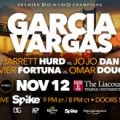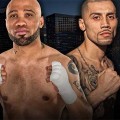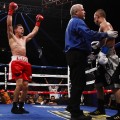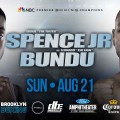 “I can’t even watch boxing anymore” Wayne Rigby
“I can’t even watch boxing anymore” Wayne Rigby
UNDISPUTED recently had the great pleasure to catch up with Manchester’s former British lightweight champion Wayne Rigby. In a twelve-year career the aggressive 20-11 (8) Rigby would feature in many memorable fights and win various titles at both lightweight and light-welterweight.
Despite many accomplishments, Wayne was probably best known for two out-standing fights with Londoner Michael Ayers. Fighting for the IBO lightweight championship, both former domestic kings locked horns and produced 22 rounds of pulsating action. The first fight was clearly the domestic fight of the year.
After the second Ayers loss, the Manchester puncher won the vacant WBF world light-welterweight title before a series of losses saw him retire at 31-years-old.
Still super-fit thanks to a still-punishing training routine, Wayne has worked a variety of jobs since leaving boxing and still works out in a gym in Manchester.
At various times of our talk it was evident Wayne was struggling to talk about some of the things regarding his career. The frustration and bitterness sadly very apparent still, some seven years after retiring.
An all-action pressure fighter with an under-rated dig, here’s what Wayne had to say.
1) You turned pro in February 1992 and didn’t get off to the best start, being edged by Lee Fox over six rounds. After a loss to John T. Kelly in December the same year, you took 18 months out of the ring. Why the break?
WR) It was just problems with my management. I started with Mickey Duff, and then went to Jack Doughty before ending up with Jack Trickett. I kept having trouble getting fights. I was with Trickett for my British title win.
2) You came back with a win over Colin McAuley and won your next few before good-journeyman Kelton McKenzie edged you in your first eight-rounder. You wouldn’t lose again in three years. Did you start to believe in yourself about this time as a fighter?
WR) Believe it or not I had some trouble with my family, it was a bit of a negative circle. I ended up leaving home at 18-years-old. Around that time (after the McKenzie fight) I started reading books about self-belief and motivation. They were all about setting goals for yourself and believing in success. Reading them gave me the fire in me that I could succeed. Louise Hays was a brilliant author; she must have had a hell of a life. She did one called ‘Step back or comeback’, that was a great read.
3) Over the next two years you would avenge your earlier loss to Kelly before winning the Central Area title before ending the unbeaten record of Alan Bosworth. That’s good form though after that last win you were out for another ten months. Was that inactivity frustrating after scoring the best wins of your career?
WR) It was frustrating at the time, I like to fight and keep busy but Jack Trickett just wasn’t getting me any fights. Sparring is ok but it’s not the same as being in the ring and fighting, I got ring rusty a few times. Bob Shannon didn’t help, as my trainer he should have been on Jack’s case to keep me busy. I still blame Bob for the Gary Ryder defeat (more about that later).
4) In January 1998 you fought Tanveer Ahmed for the vacant British title, winning a close decision. What do you recall about that fine win 13 years ago?
WR) I remember just edging the fight. There wasn’t much in it at the end. I just stayed on his chest and kept the pressure on. He was a decent fighter but I got the win. I remember the (Sky Sports) commentators saying neither of us had any power, I guess they were right; (the fight) might have looked a bit boring. I was a bit reserved with it being my first twelve-rounder, I held back a bit trying to pace myself.
5) You retained against Matt Brown before undefeated and flashy Bobby Vanzie beat you via ten-round stoppage. Was he just too slick for you to get off your pet-punches?
WR) Yeah he was a good fighter Bobby Vanzie. My style was that I wanted guys to stand and trade with me, but movers and flashy-types were all wrong for me. Vanzie was a fancy fighter, a nice boxer with all the moves. I take my hat off to him, he boxed well and got the stoppage against me.
6) You were surprisingly then beaten on points by talented journeyman Alan Temple (10-10 at the time). Were you still getting over the Vanzie loss at that time?
WR) No, it was just one of those fights I took at late notice. I dropped weight too quick; I wanted the fight to keep busy. I dropped him early on but I was too tired to press after the first few rounds. I was shattered by the end of that fight.
7) In December 1999 you took on tough and durable Mark Haslan. He’d gone the distance with Colin Dunne and Gary Hibbert but you beat him by stoppage in three rounds?
WR) It was a local (Manchester) Derby, he really got to me before the fight. Friends of mine had spoken to him and he’d apparently said “Rigby’s passed his sell-by date”. I was really angry about that so it fired me up, by fight time I hated the guy. I went in there and totally destroyed him.
8) You picked up the IBO inter-continental lightweight title with a victory over Dariuz Snarski which set up that classic fight with Michael Ayers in your home-town of Manchester. Ayers was expected to be too strong and experienced for you, yet you came out guns blazing?
WR) That fight (with Ayers) was one of my proudest nights but I wasn’t in tip-top shape as I’d only come in on short notice. I started well but I ran out of steam in the end. I went over in the sixth but I nearly knocked him out in the eighth. Nearly all of my knock-outs were from the same punch; that leaping-left-hook and that’s what I landed on his chin. Any boxer has someone that hurt they’d start the next round going all-out to finish the opponent but I was so fatigued I just couldn’t attack him hard in the ninth round. After the fight Ayers said that was the most hurt he’d ever been in the ring which is some compliment to me.
9) You are a very humble under-stated guy, were you a little shocked at the attention that fight received afterwards; winning awards etc?
WR) I knew it had been a good fight but it really hit home the next day. Everybody seemed to be talking about the fight, I had reporters calling me at home, and they kept playing it over and over on TV.
10) You said after that fight that you a bit embarrassed at how the fight ended (Rigby signalled to Ayers that he couldn’t continue, which the champion mutually accepted and stopped boxing). How do you view the end of the fight now when you look back?
WR) I just feel the same way; I’d just hit the wall in the fight and if I’d been given more notice I’d not have ended the fight like I did.
Many years later I was going out with a girl called Lisa. I found the first Ayers fight and put it on to watch. I started watching it and it was just the fight, the atmosphere and everything; I burst into tears. Lisa had to turn it off. You hear of fighters struggling to walk away from boxing but with me, I missed it but I never left boxing with anything (financially).
11) The rematch eight months later was another superb encounter, were you surprised the champion boxed more in the second fight?
WR) Well (Ayers’ team) were playing mind games in the rematch, they kept scheduling the fight and cancelling the week before the fight was meant to be happening. It messed with my head a bit; getting into fighting shape and then it all be for nothing. I read later on that in the time between our first and second fight Ayers actually had another fight in Germany.
I only made £8000 from the rematch. I told Ayers after the fight what I was earning and he was shocked, he was making £95,000! My official purse (I was told) was £15,000, but after expenses it came to only £8k. Many years later I saw the contract and it said my purse was meant to be £75,000. It made me think, “how much more money did I lose over the years?”
12) Later that year you won the WBF light-welterweight belt in another hard fight against Antonio Ramirez; did you know much about your opponent before-hand?
WR) No I’d never heard of him. I started the first couple of rounds and I thought “if it stays like this I’ll be ok”. But then in the third round he came out throwing everything at me! That was a tough fight (Rigby won a gruelling unanimous decision).
13) After one defence of that belt you dropped back down to lightweight to fight Colin Dunne. You came in very light and seemed lethargic in that contest; did you over-train before that fight?
WR) There are two fights of mine I could never sit down and watch afterwards; the Gary Ryder fight and the Dunne one. I’d always wanted to fight Colin Dunne, for years before we met in the ring. I was massively ‘up’ for the fight and was ready for us to have a tear up. I got in superb shape for the fight, I was already 9st 9lbs (135 lbs) for several days before the weigh-in. I went around to my friend Michael Brodie’s hotel room and I jumped on his scales I was 9st 11lbs (137 lbs). I said “Mike, your scales are wrong”. He said “no they’re not mate, you know what I’m like with my weight”. So, with the weigh-in the next day, I put my tracksuit on and headed for the sauna. I stepped on the scales at the official weigh-in and I was 9st 7lbs (133 lbs)! I was completely weight-drained, in the fight Dunne must have thought he’d hit the jackpot. I couldn’t watch the fight in full afterwards I knew I’d messed up and been beaten while weakened.
14) You lost your last three fights on points, have you any regrets about fighting when you were probably past your best?
WR) The Gary Ryder fight really bugged me. I had fair notice to the fight and I’d seen Gary fight a couple of times. He was a former body-builder but I thought he looked so beatable, I thought I’d beat him easily. Anyway, my trainer Bob Shannon didn’t get me sparring for the fight. I was a lot younger back then and I let him intimidate me, so I didn’t make a big deal about the lack of sparring. Three days before the fight Bob says I have to spar. I did twelve rounds back-to-back with three 11 stone (154 lb) fighters and they absolutely beat the sh*t out of me. I never got over it by the time I got into the ring with Ryder. I was throwing punches and they were little taps, not full bloodied shots. Gary must have thought I was taking the p*ss hitting him like that!
I was warned not to fight Tony Montana, he was meant to be tricky. I took the fight anyway because I just wanted to get back in there and give it another go. It was the same with the Roger Sampson fight. I’d told my team that I wanted a couple of bodies to stand in front of me, get a couple of wins and then go for the British title (Wayne only needed one more win to secure a Lonsdale belt outright). I said to myself if I couldn’t beat the journeymen I’d become a journeyman myself so I knew to get out (of boxing).
15) During your reign as British champion you were called “The bed-sit champion” for obvious reasons. You were also said to be bitter at the sport when you retired as the financial rewards were not as evident as one would think. Has that bitterness eased in the seven years you’ve been retired?
WR) No they have never eased. I was a British champion earning £3,000 a fight, living in a little, tiny room. All the fights I had, I boxed for over 20 years, the titles I won, and I’m now working twelve-hour shifts just to make a living. My managers have a lot to answer for. Managers are so tight, they take all the rewards, none of them care about the fighters. I’ve got nothing now; I still have to graft just to get by. I was a professional fighter to the core; every fight I trained so hard for. There were some fights I suffered terrible facial damage in and it really upsets me I’ve nothing to show for any of it (my boxing career).
16) If you could go back in time and tweak a few things in your boxing career what, if anything, would you change?
WR) There’s two things; firstly I’d have made the weight properly in the Colin Dunne fight. Secondly, I wouldn’t have let Bob Shannon ruin the sparring for the Gary Ryder fight. I should have had a right tear up with Dunne and should have beaten Ryder easily, yet lost both. If either of those two made a comeback I’d comeback myself and fight them. I’m being serious, I would.
17) What are you up to these days?
WR) I work twelve hour shifts in security at a hospital. I still keep in shape going to Joe Pennington’s gym and I run regularly too. I worked the doors for years but, back in them days you gave (trouble-makers) a slap and send them on their way, nowadays, they come-back ‘geared-up’. It’s a dangerous game these days.
18) Do you still follow boxing?
WR) Truthfully? Very rarely. I loved boxing all of my life but now when I talk about it and all the sh*t that happened to me; losing money for getting beaten up it just makes me very angry and upset. Guys in the gym will ask me who won a fight and I’ll say “I’ve no idea”. They’ll be amazed but I just don’t follow it anymore. I can’t even watch it these days.
I have to say though, there’s a lad at the gym I train in, he’s about to turn pro. I really think he’ll go far, he can do it all. His name is Craig Bunn and I’ll definitely be watching his fights.






am gary ryder an i think boxing is not worth it for the work you put in you dont get it back a boxer will go threw hell to get ready for fights an get coppers an a footballer gets megger amounts of money for a team game were a boxer will get robbed by is manager an i think the best thing that as happend to boxing is ricky hatton promotions wer he will luck out for fighters intrest i got out of it i seen sense
great guy had the pleasure of working on the doors in rochdale with him top lad
nice 1 chris,just seen comment,thanks
what a joke if you was in any other profession you could take your management to tribunal and recover your losses and stolen earnings! Some promoters and Boxing managers (you know who you are) abuse the trust of their fighters and bring the sports good name in to disrepute with no repercussions?? Sport like boxing and football are often the only opportunity for working class lads (and lasses of course) to reap the benfefits (financial and social) of their talents, (evidently, only with the right advice and guidance). Yet the greedy few still manage to manipulate and abuse their positons and hard working fighters, taking advantage of decent lads! you should hang your heads in shame!
To those promoters and boxers and managers that respect the sport and its sportsmen hats off to ya!
read your comment,thank you……….wayne rigby